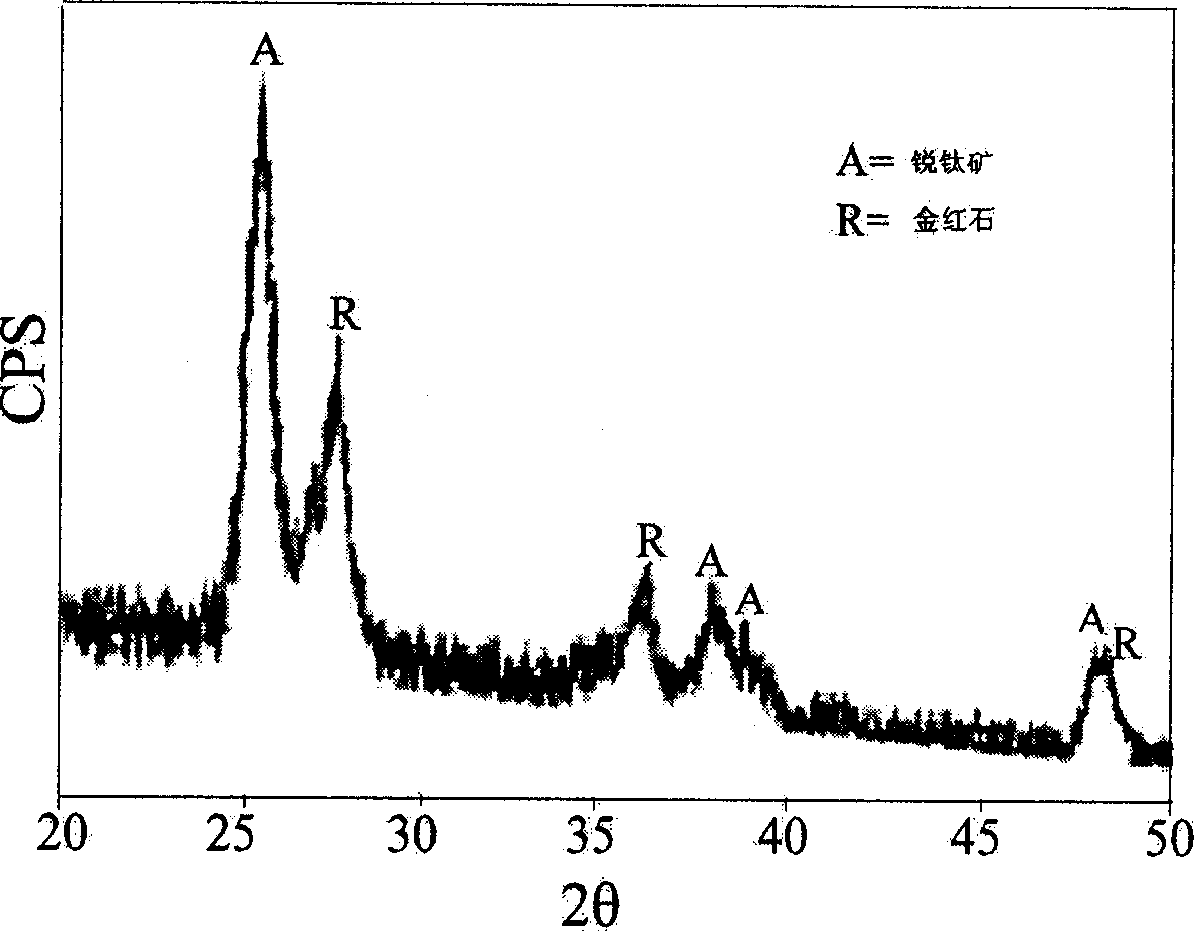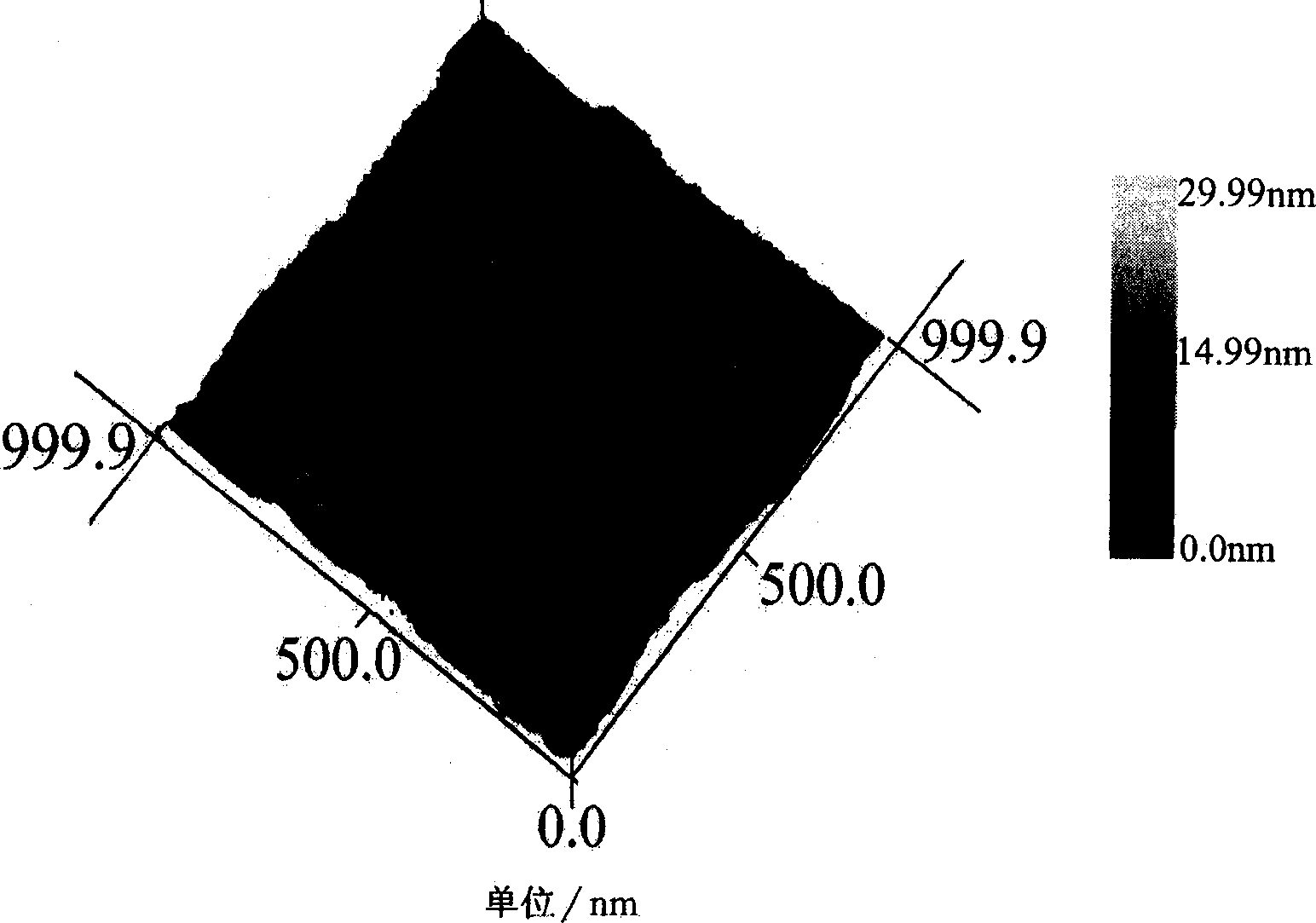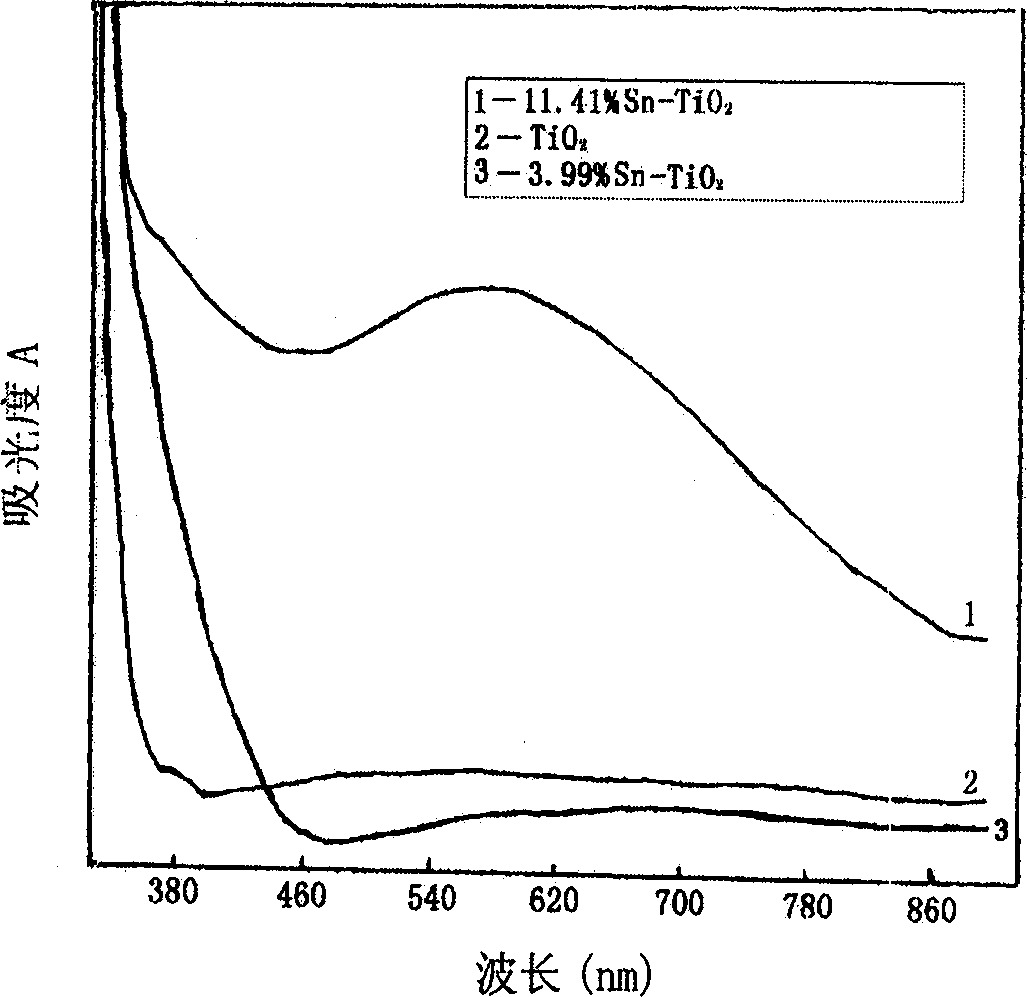Method for preparing visible light-inducing stannum-doped highly catalytic nano photocatalyst of titanium dioxide
A nano-titanium dioxide, high catalytic activity technology, applied in catalyst activation/preparation, chemical instruments and methods, physical/chemical process catalysts, etc. The effect of improving the photocatalytic degradation rate and improving the photocatalytic activity
- Summary
- Abstract
- Description
- Claims
- Application Information
AI Technical Summary
Problems solved by technology
Method used
Image
Examples
Embodiment 1
[0019] First drop 17ml of tetrabutyl titanate into 23ml of absolute ethanol, continue magnetic stirring, then slowly add 11ml of acetylacetone as a complexing agent, and obtain a uniform solution a after full reaction; add 2.00g of SnCl 4 ·5H 2 O was dissolved in 47ml of absolute ethanol, then 2ml of distilled water and 0.4ml of nitric acid were added dropwise, and magnetically stirred to obtain a uniform solution b. The reaction temperature is controlled at 30°C, and the solution b is slowly added dropwise to the solution a to carry out the hydrolysis reaction. The Sn that will eventually form 4+ Ion-doped TiO 2 The sol was sealed and aged at room temperature.
[0020] Immerse the pretreated clean glass tube (1cm×2.5cm) into the prepared sol solution at a speed of 4cm / min and let it stand for 2min. After the liquid level is stable, pull it vertically upward at the same pulling speed, and the wet film Place it at room temperature for 5 minutes, then dry it in a vacuum oven...
Embodiment 2
[0023] The process step of this embodiment is basically the same as that of embodiment 1, the difference is that the SnCl 4 ·5H 2 The doping amount of O was 1.30 g. The photocatalytic activity test test shows that the 7.42% Sn of the present embodiment 4+ Doped TiO 2 The photocatalytic degradation rate of the photocatalyst film to the methyl orange solution was 74.63%.
Embodiment 3
[0025] The process step of this embodiment is basically the same as that of embodiment 1, the difference is that the SnCl 4 ·5H 2 The doping amount of O is 0.70 g. The photocatalytic activity test test shows that the 3.99% Sn of the present embodiment 4+ Doped TiO 2 The photocatalytic degradation rate of the photocatalyst film to the methyl orange solution was 67.72%.
PUM
| Property | Measurement | Unit |
|---|---|---|
| Concentration | aaaaa | aaaaa |
Abstract
Description
Claims
Application Information
 Login to View More
Login to View More - R&D
- Intellectual Property
- Life Sciences
- Materials
- Tech Scout
- Unparalleled Data Quality
- Higher Quality Content
- 60% Fewer Hallucinations
Browse by: Latest US Patents, China's latest patents, Technical Efficacy Thesaurus, Application Domain, Technology Topic, Popular Technical Reports.
© 2025 PatSnap. All rights reserved.Legal|Privacy policy|Modern Slavery Act Transparency Statement|Sitemap|About US| Contact US: help@patsnap.com



